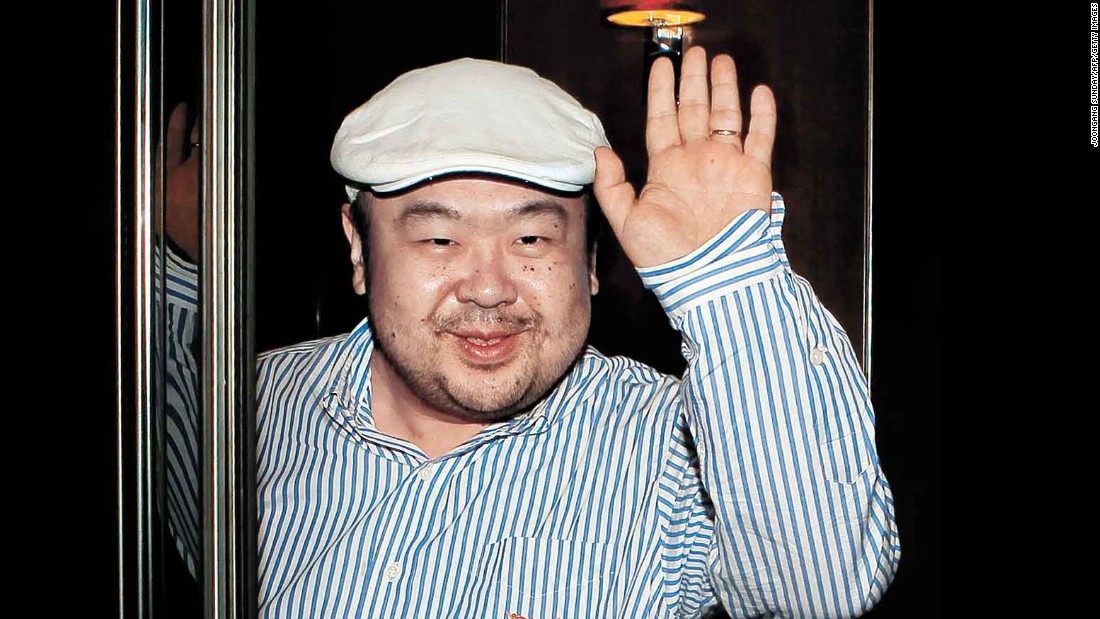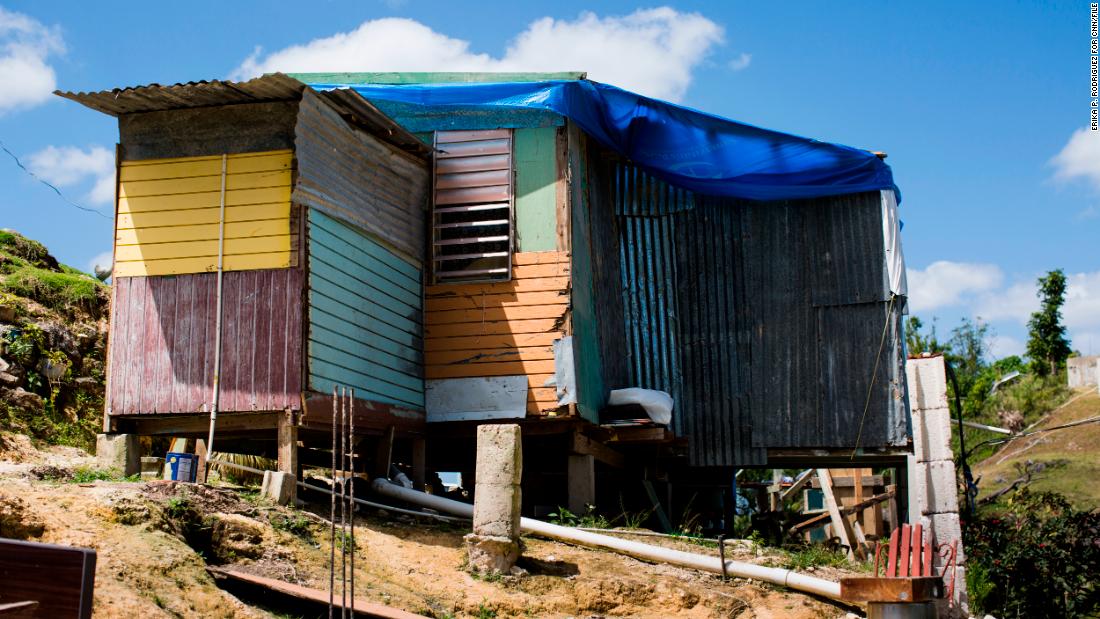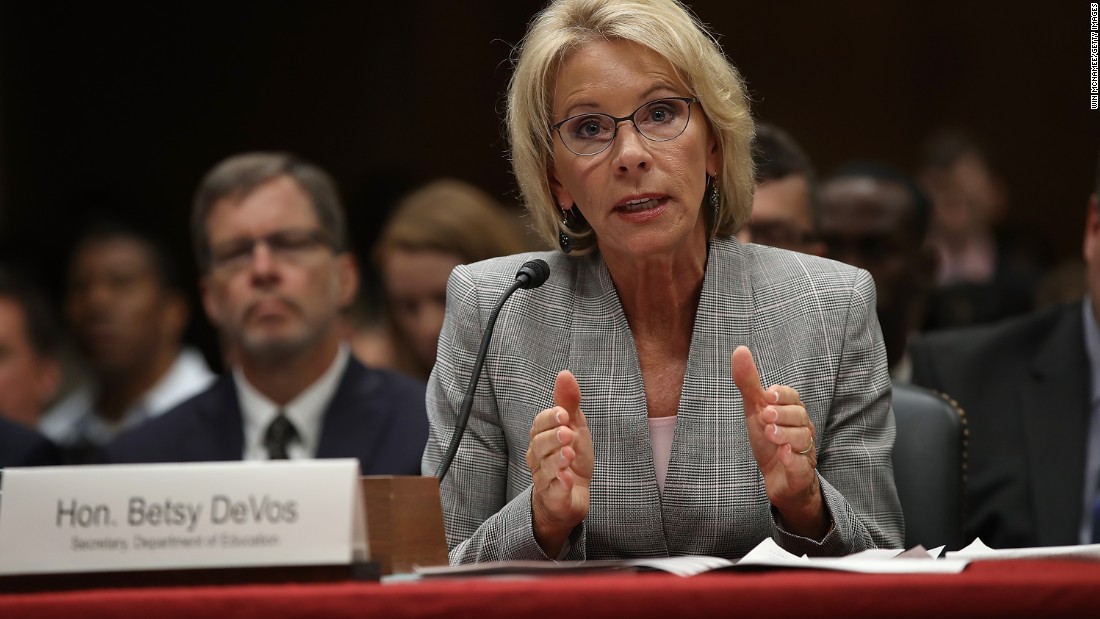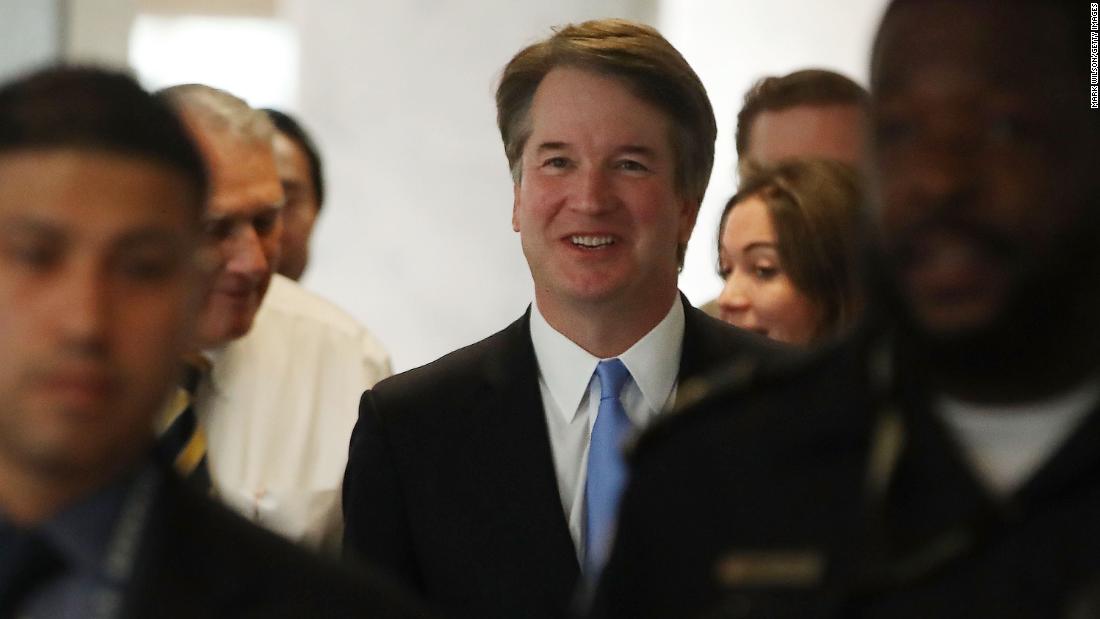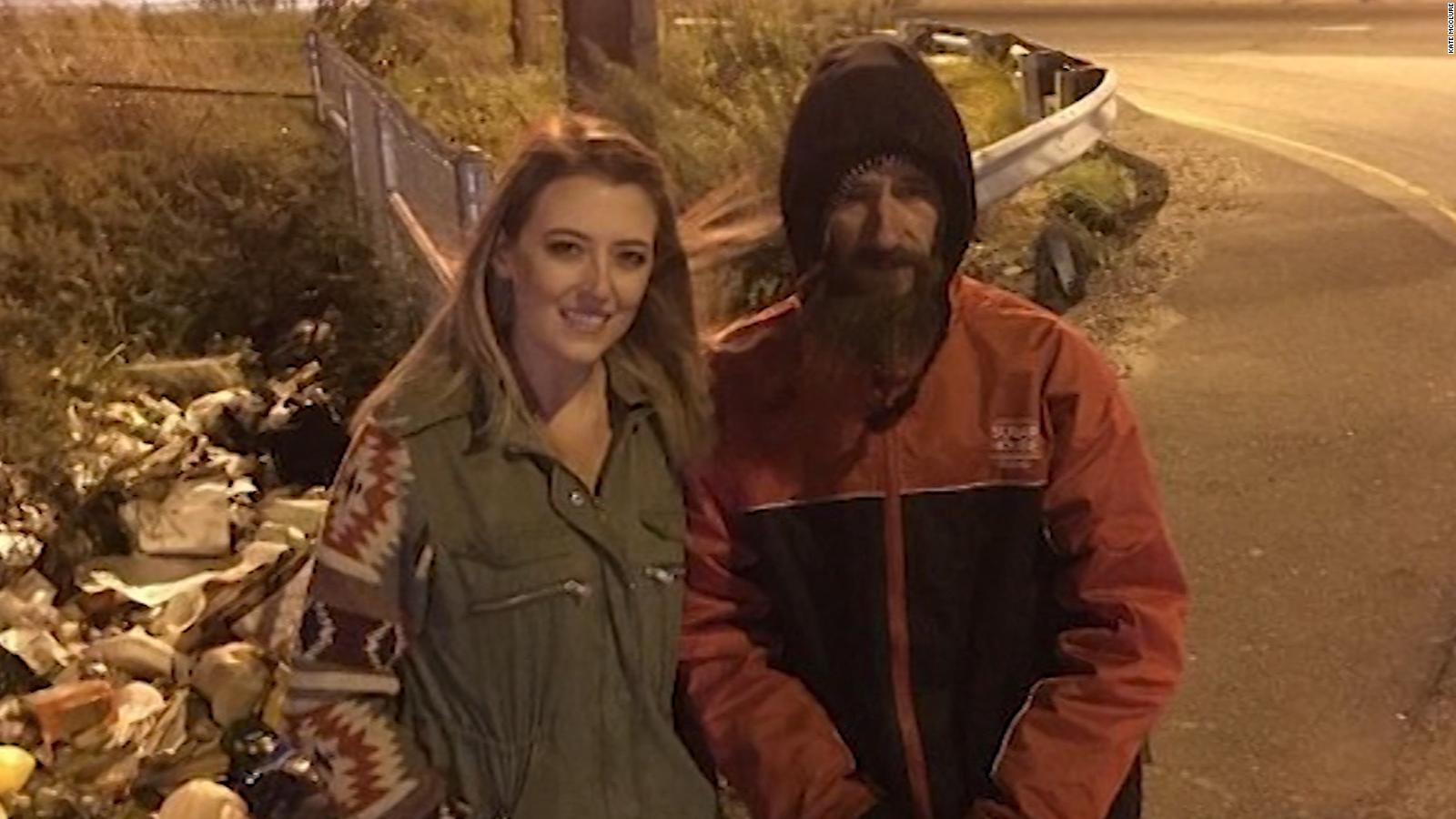Puerto Rican officials admitted this week that the death toll from Hurricane Maria, which hit the US territory last September, is 46 times higher than they'd previously said.
Not 64 dead, as was the official line.
An estimated 2,975 deaths.
Yet that's just a statistical estimate -- an approximation.
Officials have still only released details on 64 of those individuals. They've named just 57.
Internally, Puerto Rican authorities have identified additional individuals whose deaths they consider to be hurricane-related, but their names have not made public, according to a Puerto Rican official who spoke with CNN on the condition of anonymity because the person was not authorized to speak on internal matters. The official asked the exact number of named deaths not be reported because they said that figure is not widely known even within the government.
Puerto Rico Gov. Ricardo Rosselló is forming a "
9-20 Commission" that will look broadly into additional uncounted deaths and recommendations produced by the George Washington University study that estimated nearly 3,000 people died, the official said.
September 20 -- or 9-20 -- was the date Maria hit Puerto Rico.
Tying individual deaths to the storm is far more difficult and time-consuming than estimating the number of "excess deaths" that followed a hurricane like Maria, according to the official.
"If there is a death certificate or information on cases that can be associated to the hurricane, we want transparency, right? We want to make justice for everyone," the official said.
'They're just numbers, they're not people'
Some friends and family of the deceased, however, say the government's handling of the death toll has been unjust -- even after the death toll was updated this week.
"For the government, they're just numbers, they're not people," said Lisa de Jesús, whose best friend, Reinaldo Ruiz Cintron, died while working in a cleanup crew after the storm. His death has still not been recognized by officials as storm-related despite the fact it was labeled "victim of cataclysmic storm" in a mortality database CNN and the Centro de Periodismo Investigativo (CPI) sued the Puerto Rican government to obtain after officials wouldn't make it public.
"Those people left family behind -- left people grieving. ... It's not like (Puerto Rican officials) have to make a monument. But at least say, 'Hey, look, these are the people who died. These are the people who always will be remembered. These are the people who helped their country ... and they're not forgotten.' They were people. Important people. At least for us."
Tuesday's report from George Washington University -- which Puerto Rico commissioned for $305,368, according to the contract -- is just another number, an estimation, de Jesus said.
It doesn't recognize the individual victims like her friend.
Researchers initially proposed an assessment that would have included individual storm-related deaths -- likely including interviews with family members, medical providers and a review of hospital records, said Dr. Carlos Santos-Burgoa, a professor of global health at George Washington University and the principal investigator on the report Puerto Rico commissioned.
That proposal was rejected, apparently because of the cost, Santos-Burgoa told CNN, with the understanding that a follow-up study might be commissioned. No such study has been agreed to, he said. Researchers are actively searching for a new funding source.
"When we were approached, we submitted an overall proposal that included the whole thing," Santos-Burgoa said. "And they said, 'You cannot have it all. You look like a teenager -- you want to have everything! And you cannot have it.'
"It was much more complex. It had many more components, the original proposal."
"They said, 'We are going to fund Phase I for the total mortality and let's see what happens with Phase II," he added. "The government never committed to funding Phase II."
Puerto Rican officials did not respond to requests for comment on this account. Nor did they respond to questions about whether the official list of individual people whose deaths are hurricane-related has been updated.
Rosselló, the island's governor, said in a press conference Tuesday that researching exactly who died in the storm could take months or years -- and it's unclear who would pay. "We are using the best science available ... to be able to give a sense of closure to all of this," Rosselló told reporters at the event in Puerto Rico. "The truth is there is a lot of work to do."
Officials will continue to investigate deaths and update the tally accordingly, he said.
Uncounted deaths
CNN started raising questions about the Hurricane Maria death toll in October, after surveying funeral homes in one municipality and then contacting 112 of them across the island. Those reports, along with work by journalists from the CPI in Puerto Rico, The New York Times and others pushed Puerto Rico to commission the review.
Rosselló first announced a review of deaths in December, citing news reports showing deaths were underreported. The governor in February held a press conference to announce that Puerto Rico had hired George Washington University to conduct the analysis.
Since then, Puerto Rican authorities had told reporters that they would not comment on uncounted deaths until the study from George Washington University was complete.
This week, after the report published, CNN sent Puerto Rican officials a list of people whose deaths the network has found appear to be related to Hurricane Maria based on guidelines from the Centers for Disease Control and Prevention. The list named, among others,
three people -- including Ruiz Cintron -- whose deaths were labeled in records CNN and CPI sued Puerto Rico to obtain, as related to a "cataclysmic storm." It also included two deaths labeled in Puerto Rico's own records as related to a waterborne illness, leptospirosis, that is known to have spread in the aftermath of Maria. (CNN and CPI reviewed a database of death records to show that an
unreported outbreak or epidemic of that disease occurred; officials still refuse to call it that).
Puerto Rican officials did not respond to repeated questions about the cases.
At least one additional death was listed by officials as storm-related last year following a CNN report.
'It's been a year, almost'
There's been ample time for officials to continue amassing evidence about who died and why, said Dr. Irwin Redlener, director of the National Center for Disaster Preparedness at Columbia University. "It's been a year, almost," he said. "You would think there's already been enough time to make those lists and get the information out there. But they started from a place of minimizing fatalities. There were political challenges and communications challenges."
Controversy about Hurricane Maria's death toll started October 3 when President Donald Trump visited Puerto Rico. In a press conference with Rosselló, Trump praised the relatively low death toll from the storm -- then 16 -- and said he was glad Maria did not have the death toll of a "real catastrophe" like Hurricane Katrina, which pummeled the Gulf Coast in 2005.
Later that day, after Trump left the island, the death toll rose to 34.
The White House this week said in a statement from Sarah Sanders that "the federal government has been, and will continue to be, supportive of Governor Rosselló's efforts to ensure a full accountability and transparency of fatalities resulting from last year's hurricanes -- the American people, including those grieving the loss of a loved one, deserve no less."
President Trump followed that up on Wednesday by saying that the federal government had done a "fantastic job" of responding to the disaster in Puerto Rico.
Rosselló admitted mistakes in how officials communicated about the death toll in the aftermath of the hurricane, but he denied any political interference in the tabulation of the deaths. "My only consideration is the well-being of the people of Puerto Rico," he said Tuesday. "My only consideration was getting the best available information and the truth out there."
'Where is the study to quantify how many lives were saved?'
Political pressure has been mounting in Puerto Rico.
In recent weeks, two officials at Puerto Rico's Bureau of Forensic Sciences, which reviews deaths, resigned, according to local news reports. (Both officials reportedly cited personal reasons). Additionally, some politicians in Puerto Rico have been calling for the resignation of Héctor Pesquera, who heads the Department of Public Safety. In an October interview, Pesquera told CNN any insinuation of political interference in the death toll was "horseshit."
"We have to move forward. We can't go backwards," Pesquera told a local Univision affiliate this week. "If it's a question of blame, the government accepts it and I accept it, there is blame for everyone. But there was a catastrophe. That is the reason for all this. If that hadn't existed, would there have been 2,975 dead? No, probably not. So we have to attribute this to the hurricane."
He added, "Where is the study to quantify how many lives were saved? That doesn't exist."
Rosselló said this week that he has confidence in Pesquera.
The George Washington University report and others like it find that many hurricane-related deaths occurred well after the day of the storm -- raising questions about the adequacy of the federal and territory-level response to Hurricane Maria and its aftermath.
A CNN comparison of power restoration in Puerto Rico versus Hurricane Irma in Florida and Hurricane Harvey in Texas, for example, shows widespread and lengthy delays in Puerto Rico.
Thousands were without power for months -- some for the better part of a year.
While it's unclear if the deaths were related to the void in basic public services, the George Washington report found "excess deaths" continued at least into February -- five months after the storm. That was especially true for poor people and older Puerto Ricans, researchers found.
For residents in the lowest socioeconomic bracket, the risk of hurricane-related death actually increased in the months after the storm, peaking in January, the report says.
Some people in remote parts of the island felt abandoned.
"
We are the forgotten people," Victor Manuel Belen Santiago, whose mother, Zoraida, died in February without power needed to run an oxygen machine, told CNN this spring.
'It still hurts so much'
Not everyone thinks the names of storm victims should be released.
Listing the names of the deceased raises privacy concerns and would be "uncommon," said John Mutter, a professor at Columbia University who studied deaths after Hurricane Katrina.
Still, he said, more information needs to be released about exactly how and why people died in order to do better next time. "What needs to be released publicly is the statistics on cause of death, age, race, gender and, if possible, the location of the death -- where did people die."
The list of names does matter for some families and friends of the deceased, though.
It matters symbolically in that some want their loved ones to be remembered publicly. And it also matters, potentially, in terms of government assistance. Families of people whose deaths are officially classified as storm-related may be eligible to have some funeral expenses reimbursed by the US Federal Emergency Management Agency, or FEMA.
The maximum payout for funerals and related expenses for eligible people is $6,000, a FEMA spokesman told CNN in November.
There are other ways in which the death toll matters financially, too.
Higher death tolls also tend to draw more attention from Congress and the public, so the accuracy of the figure matters a great deal in terms of disaster response, said Redlener, who heads the National Center for Disaster Preparedness at Columbia. "If the government is putting out and the White House is confirming and gleeful about a very small number of fatalities, then you underplay the impact of the storm," he said, "and that undermines the motivation for Congress, for example, to appropriate the right amount of money for response."
There also is an emotional punch, Redlener said. "If your loved one died during or after a massive storm and the government is not even acknowledging that, it's very hard to get any kind of closure," he said. "On the individual family level and on a community level the names are important -- and it's important that the names get acknowledged."
Lisa de Jesús wants her friend, Reinaldo Ruiz Cintron -- who loved the sea, loved crab fishing and wanted to see Puerto Rico rebuild after the storm -- to be remembered by name.
The same is true for Juan Luis Ortiz Guzman, whose mother, Pilar Guzmán Ríos, died on September 29, 2017 without access to adequate medical services or power to run medical equipment. Guzman was so well-liked in her mountain community that neighbors said that "even the cats prayed for Pilar" when she got sick. She was known for raising three birds on her back patio -- and she'd taught them to chant the rosary and sing "La Cucaracha."
"It was not easy to lose my mama, and it still hurts so much," her son, Ortiz Guzman, said on Thursday. "But to be in front of the television, and hear an official say, 'No, there were 64, and no more' ... it still infuriates me. ... So many people died because of this storm."
"My loved one is gone. Mine is with God," he added. But if recommendations from the report are taken seriously, he said, "at least in the future they can know and save our lives."
"It's still painful," said Jan Marcos Fuentes Morales, Pilar's great-nephew. Some family members are still living in an informal shelter because their homes are damaged, he said.
"I would like (officials) to come here and see how families are still suffering. They should see that with their own eyes. Anyone they talk with is going to tell them about someone who died."
CNN's Leyla Santiago and Jason Kravarik contributed to this report.




